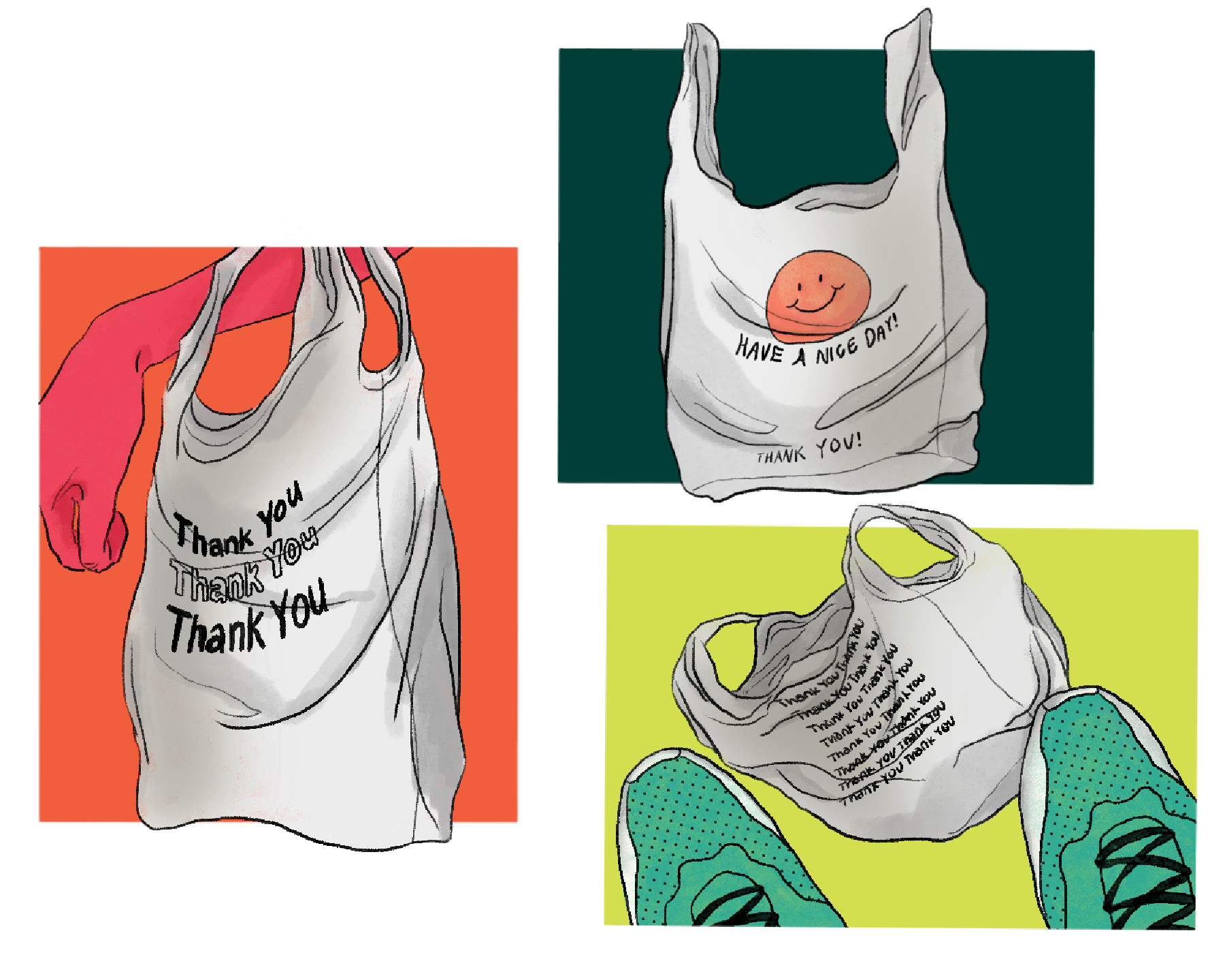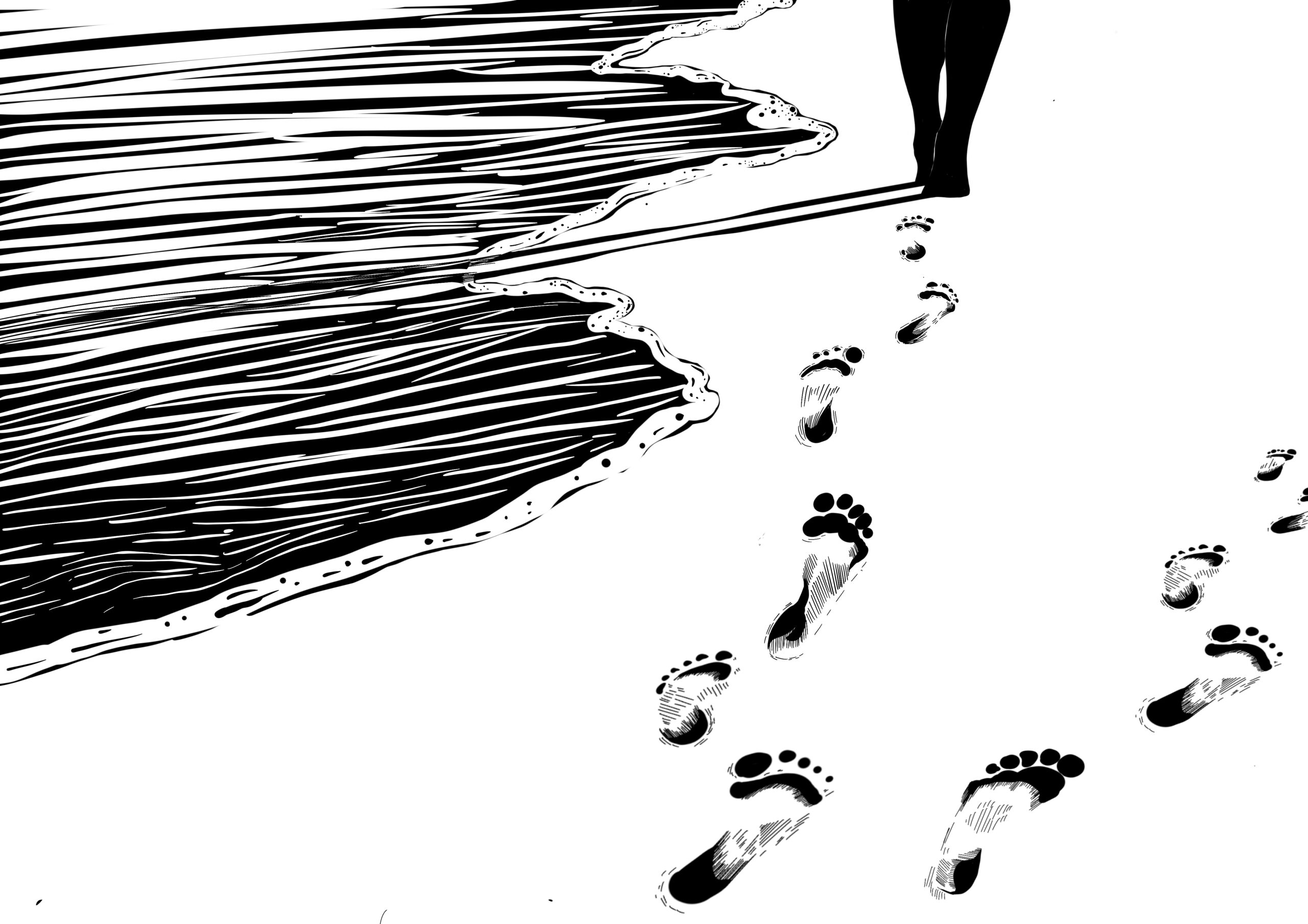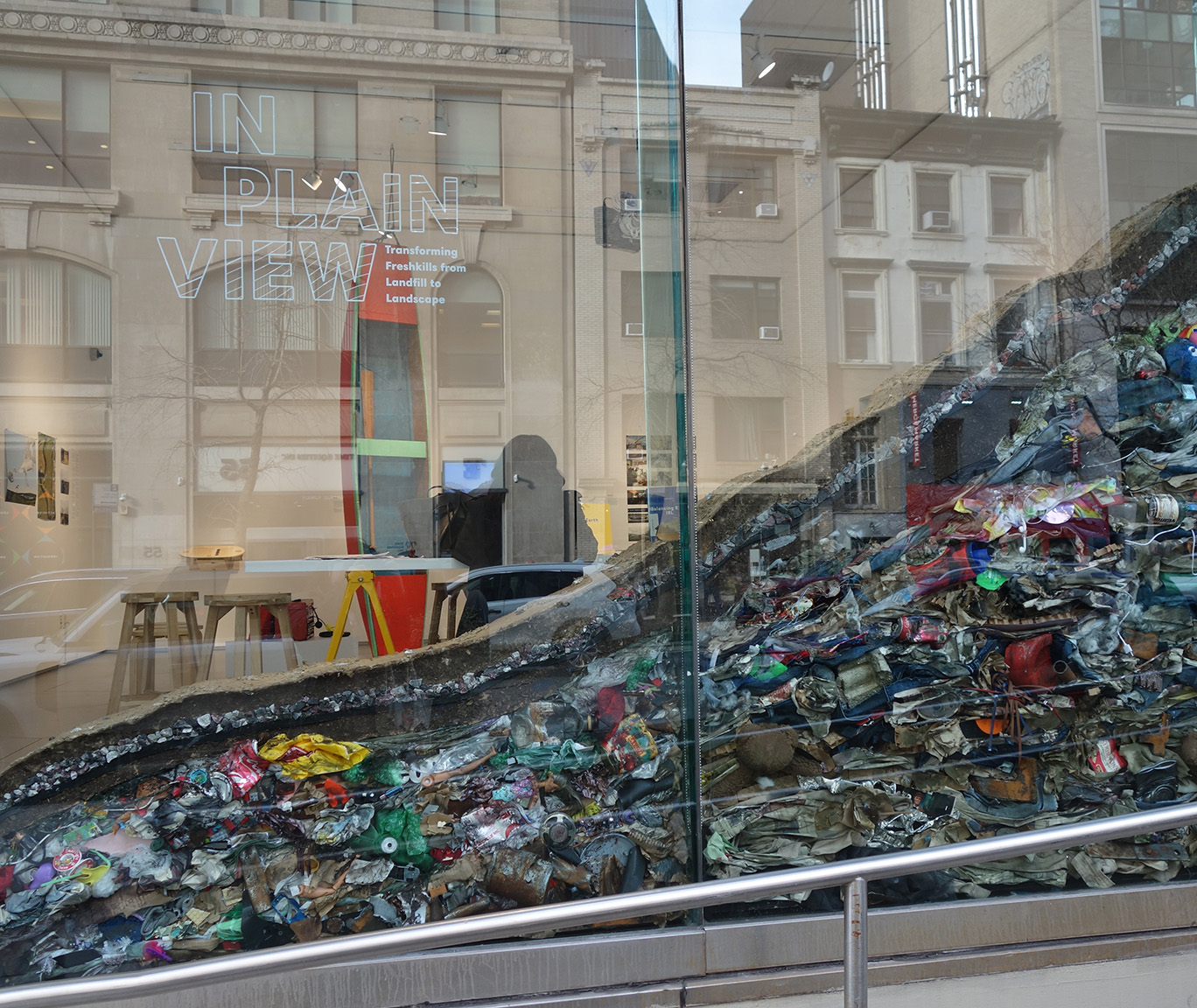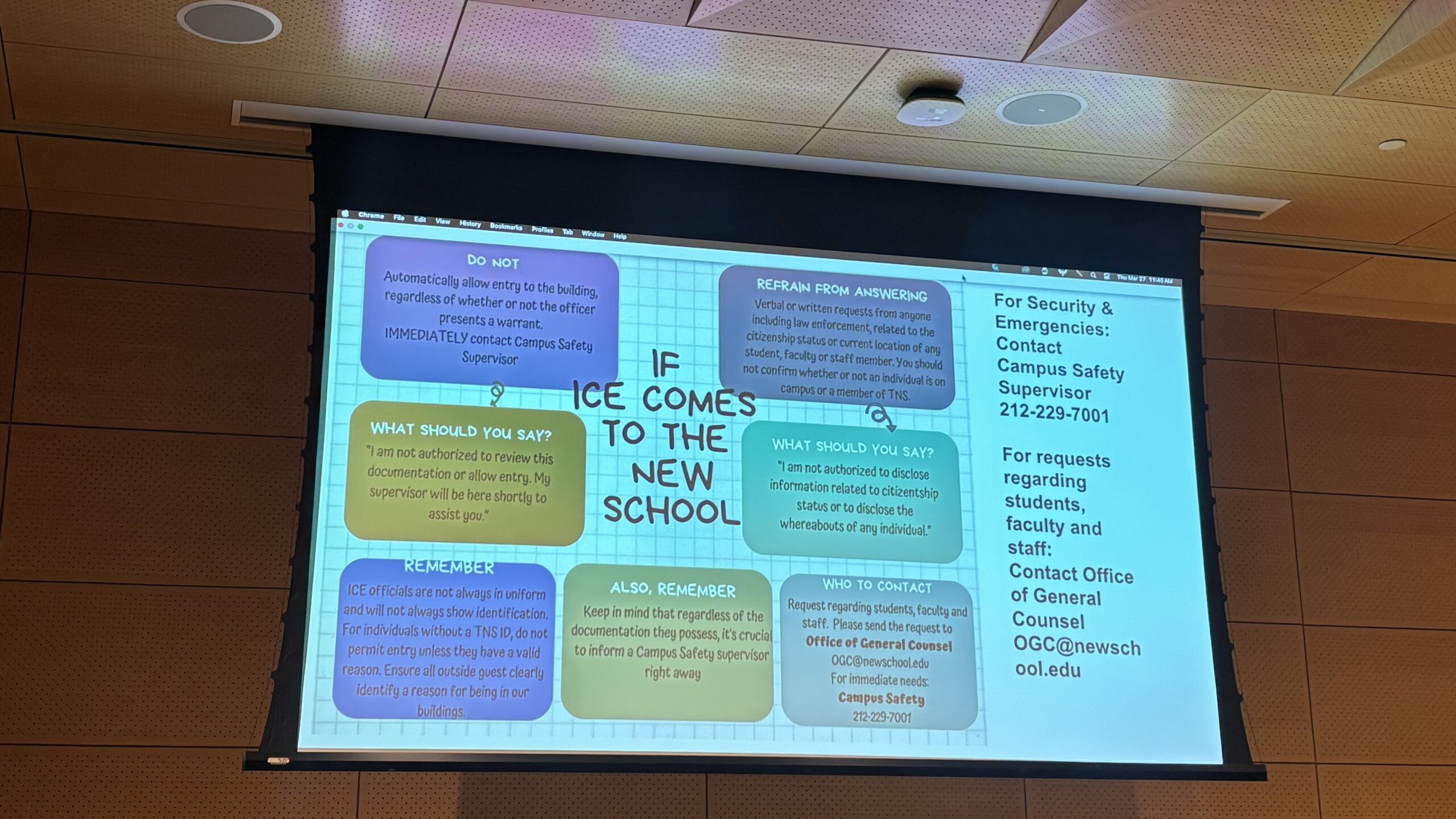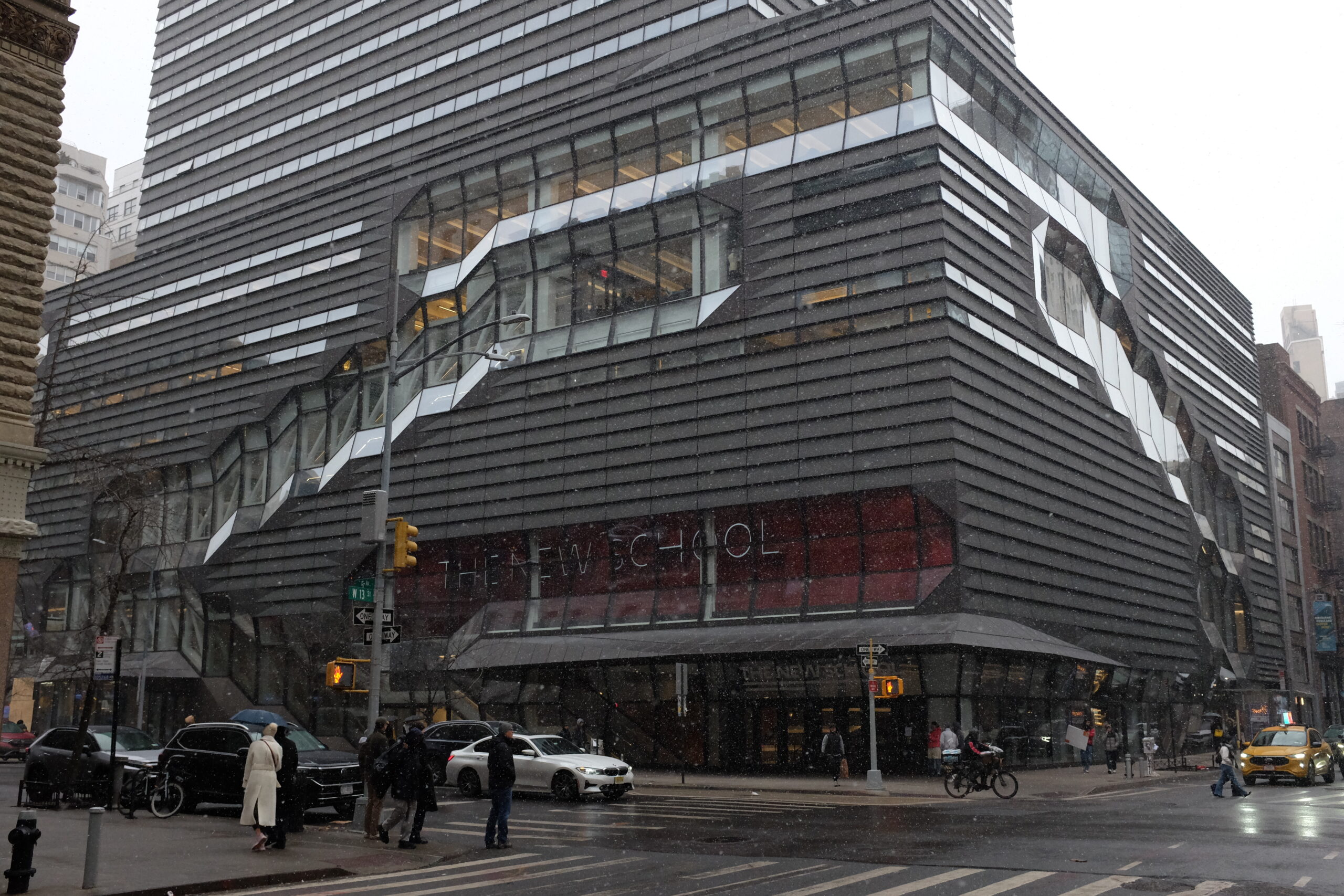This article appears in our March print issue. You can pick up a copy on newsstands around campus, or at our newsroom in room 520 in the University Center.
Leftover plastic bags from carrying the week’s groceries and bodega snacks will no longer be stuffed to the back of New Yorker’s cabinets for later reuse. In a push to preserve and clean up the state’s environment, waterways, and air, single-use plastic bags were banned on March 1 and replaced with paper bags with a fee of five cents under the New York State Plastic Bag Waste Reduction Act.
“New Yorkers use an estimated 23 billion plastic bags annually – each for about 12 minutes – and approximately 85 percent of this staggering total ends up in landfills, recycling machines, waterways, and streets,” said a Feb. 17 press release from the New York State Department of Environmental Conservation.
“From my understanding and research, there is no way to keep plastic from breaking down into the environment,” said Dylan Gaulthier, who teaches the University Lecture titled “Plastic! Waste, Design, Entanglement, and the World’s Most Formidable Substance”, in a phone interview.
“You see plastic bags hanging in trees, blowing down the streets, in landfills and in our waterways, and there is no doubt they are doing tremendous damage,” said Governor Andrew Cuomo after signing the New York State Plastic Bag Waste Reduction Act on Earth Day, April 22, 2019.
Plastic bags have been such a problem for New York that the state created a Plastic Bag Task Force in 2017 with the goal of developing strategies to mitigate the state’s reliance on bags. The Task Force’s 2018 report laid out the issue in stark terms.
“Plastic bags also interfere with wastewater treatment plants, pose a threat to fish and wildlife, and break down into microplastics. These microplastics, which can be millimeters to micrometers in size, can absorb toxins and leach chemicals. When ingested by wildlife, these chemicals and toxins bioaccumulate up the food chain to humans,” the report read.
“In 2010, approximately 4 to 12 million metric tons of plastics found their way into aquatic environments. It is estimated that by 2050, there will be more plastic by weight in the world’s oceans than fish,” said the same report.
[slideshow_deploy id=’19761′]
In advance of the new law, shoppers were greeted in stores by signs near check-out areas announcing the beginning of the plastic-bag-free era for the state.
“As a business, because you are already established, all you can really do is prepare because now that’s the law,” said Eli Singleton, associate manager of the Blick Art Materials on 13th Street.
Singleton said that the store had not done much to prepare for the ban but was waiting on Blick’s corporate offices to give the word on what the next move would be. “We just know we aren’t going to get plastic bags anymore.”
Lin Ko mans the counter at H&H Fruit and Grocery, the bodega at the northwest corner of Sixth Avenue and 11th Street. After the regulations were finalized last month, Ko initially fretted about how she would replace the frequently used plastic bags.
“Right now, it’s kind of a headache,” said Ko, holding up a pint-sized paper bag. She explained that their supplier for these smaller paper bags will now provide them with large paper bags.
The manager of Merci Market on Fifth Avenue, James Shim, had mixed feelings on the plastic bag ban, “One is good, one is bad,” he said. “It’s good for the environment, but for the customer it is very hard.” Additionally, Shim said that the cost of paper bags is “double or triple” the cost of the plastic bags he bought before.
Getting rid of the old stock of single-use plastic carry out bags is being dealt with in different ways for these three businesses around school. For Merci Market, Shim said the plastic bags leftover will be returned to the seller for a refund in New Jersey.
Days before the plastic bag ban went into effect some businesses still had questions left unanswered. “The only thing I genuinely don’t know about is what we are going to do with the stock of bags we already have. I don’t know if we are going to throw them out or give them out,” said Singleton.
Bagging and weighing a crop of turnips at the Union Square Greenmarket, Tim Gorzynski of Gorzynski Organic Farm viewed the ban in a mostly positive light: “It is going to force people to prepare, to do things with purpose.”
While Gorzynski believes in the ban, he said that cloth bags are more breathable and do allow produce to rot more quickly. Gorzynski noted that plastic bags used to carry produce are exempt from the ban and that the preparation necessary for his business was minimal.
Because plastic waste washes down into sewer drains, New York City’s Wastewater Treatment Plants must filter out large pieces of plastic, like soda bottles, while microplastics still linger during the treatment process. “Plastic bags are the worst offenders that get caught up in the gears of the machinery there,” said Gauthier of the city’s Wastewater Treatment Plants, “They have to actually shut down their filtering and processing operations while they clear plastic bags.”
“The environment definitely needs to be cared for a little more, it’s already awful enough living in New York and seeing the way things are. It could definitely use a change. It’s [the ban] a good start,” said Singleton.
Singleton and Shim share the sentiment that the ban is good for the environment, but Shim also believes that forcing the use of paper bags will be an inconvenience for customers.
“Customers will complain a lot and then they will get used to it,” said Shim. But in the meantime, he worries about customers who are in a rush and how easily damageable paper bags are.
Consumers are encouraged to bring their own reusable bag while shopping if they want to avoid the five cent charge for paper, and the new law says stores must make reusable bags available to customers in the store to purchase. A “reusable bag” is defined in two forms under the law. Either it is a cloth or machine washable fabric with handles or it is a “durable” plastic bag with handles that is continuously reusable by design.
Tax revenue collected through the bag fee must be put towards the purchasing and distribution of reusable bags, specifically in low and fixed income areas, with the remainder being placed in an environmental protection fund. The fee will not apply to those utilizing the USDA’s Supplemental Nutrition Assistance Program (SNAP) or Special Supplemental Nutrition Program for Women, Infants and Children (WIC).
Other exemptions to the rule include bags containing uncooked meats or fish, bags used to package made to order foods, newspaper bags, bags intended to be sold in bulk, trash and garment bags, and takeout food and prescription medication bags (per New York State sanitary code). Vendors caught distributing plastic bags will first receive a warning but then are subject to an initial penalty of $250 and $500 for any subsequent violations.
“If we are comparing one disposable technology to another disposable technology we aren’t seeing the greatest gain,” said Gauthier, explaining that reusable bags are also produced with plastic and will inevitably be disposable. “You need to be willing to reuse that organic cotton bag about 20,000 times for it to have the same overall footprint as a plastic bag.”
Additionally, Gauthier expressed concern that plastic bag producers would simply shift their target market, saying, “In places where there are plastic bag bans, those industries move into selling plastic bags to the consumer, not the store.”
However, Gauthier aired on the side of positivity around the ban as a whole. “As we’ve seen, these plastic bag bans do have a real impact on the amount of plastic bags that people have access to and can use. We will see a net reduction in the use of plastic bags in New York State. It’s a step in the right direction and it shows a will to enact environmental policies.”

